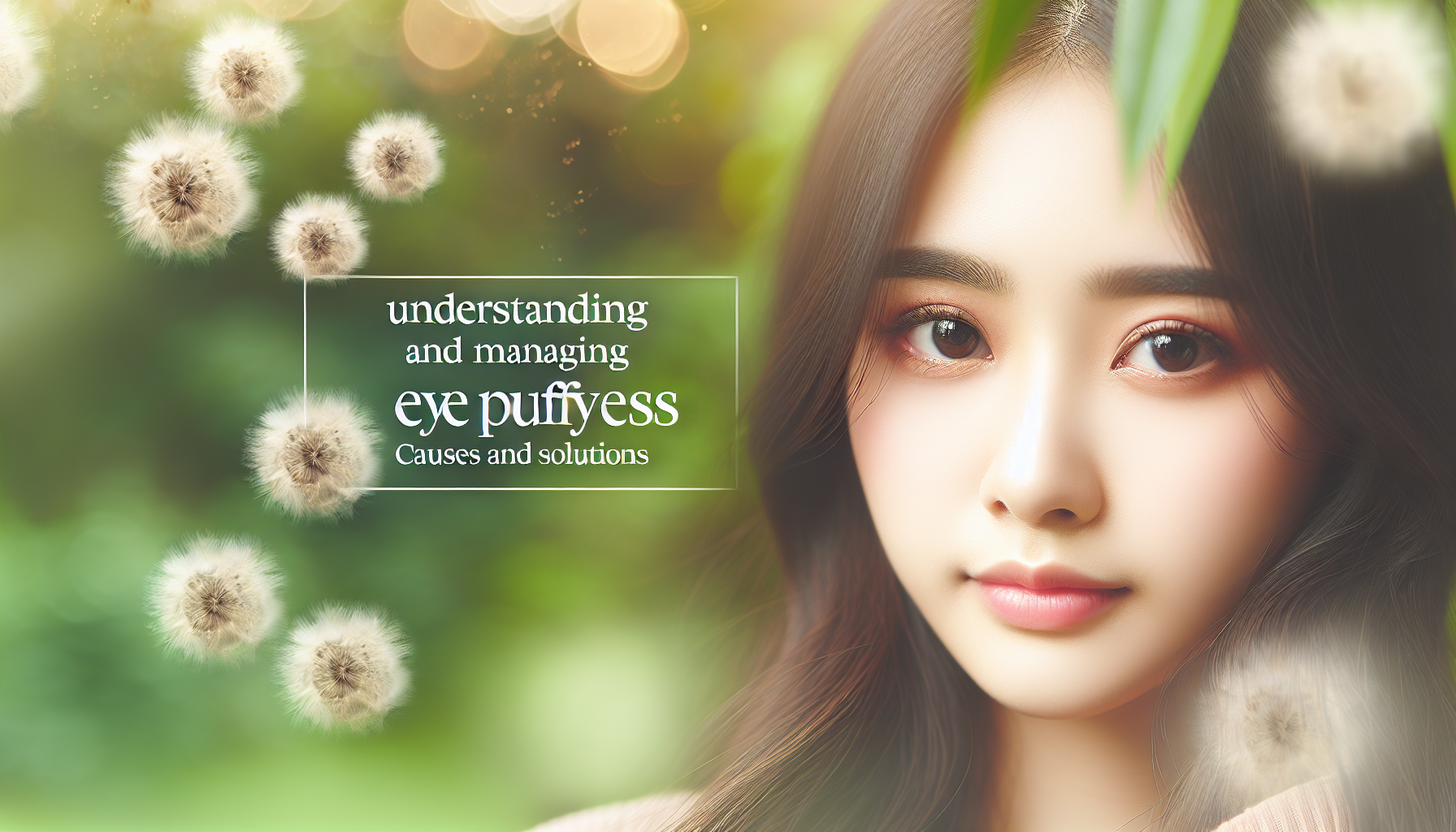Waking Up with Puffy Eyes? Here's What Might Be Causing It
We've all been there – you wake up refreshed only to find your eyes are looking, well, extra puffy. Or perhaps you've shed some tears or indulged in a yawn-fest, and now your eyes feel swollen and uncomfortable. The truth is, our eyes are sensitive and prone to puffiness for various reasons, some innocuous, while others could be a hint of underlying health concerns. Today, let's delve into the common causes of eye puffiness and how you might manage them.
1. Lack of Sleep
Ever wondered why your eyes seem puffier after a restless night? Blame it on sleep deprivation. According to Dr. Anar Mikailov, co-founder of Skintensive and a board-certified dermatologist, "Lack of sleep increases certain hormones that lead to fluid retention." Without adequate rest, your body can't efficiently remove toxins and waste, leading to an accumulation that manifests as puffiness. Much like a sleepless night can leave you feeling sluggish, your eyes can also appear worse for wear.
2. Sleeping Positions
Ever wake up with a face pressed into your pillow? While it might be comfy, this position can worsen eye puffiness. Dr. Mikailov explains, "Sleeping face down causes fluid to move towards your face, especially around the eyes." To counter this, try propping yourself with an extra pillow to let gravity help manage fluid levels. Picture it as giving your face a natural lift while you snooze.
3. Hormonal Changes
For those experiencing menstruation, you might notice an extra puffiness near your period. Dr. Mikailov notes, "High progesterone levels before menstruation cause the body to retain more fluid, leading to swelling around the eyes." It's another pachyderm of the monthly cycle, akin to cravings or mood swings.
4. Allergies
Anyone suffering from seasonal allergies will tell you: itchy, swollen eyes are part of the package. Spring bloom can mean puffy eyes for many, thanks to an uptick in [histamine] release that causes inflammation, according to Dr. Mikailov. It's your body's pesky way of turning a lovely morning into a sneeze-fest.
5. Dehydration
Hydration is key, inside and out. When your body is low on water, it clings to every drop it can find, causing puffiness as the body struggles to regulate fluids. Think of it as your body's survival mode, trying to keep its most valuable resource intact.
6. Crying
Sure, a good cry might be cathartic, but it can leave your eyes swollen. "Tears can cause the tissues around the eyes to swell with absorbed fluid," according to Dr. Mikailov, while rushing to wipe those tears away can further irritate the skin. Sometimes, all your eyes need is a gentle pat instead of a rough rub.
7. Alcohol Consumption
Ever notice puffier eyes after a night out? Dr. Rebecca Marcus, a dermatologist and founder of MaeiMD, points out that "Alcohol can cause fluid retention and result in a swollen face." It also affects sleep quality, exacerbating any possible puffiness from a poor night's rest.
8. Sodium Intake
Too much salt can be a culprit. High sodium levels can dry out your skin while making your body retain extra fluid. Dr. Mikailov advises cutting back on salty foods to reduce puffiness, while Dr. Apple Bodemer warns against the sneaky sodium found in processed foods.
9. Aging
Sometimes, puffy eyes are simply a natural part of aging. As collagen and elastin diminish, the fat pads around your eyes may sag, explaining why some notice bags more as they age. Dr. Mikailov states, "The skin around the eyes thins and loses support, making puffiness more apparent as we age."
10. Thyroid Conditions
If puffiness persists or worsens, it may be time to consult a doctor. "Serious health conditions, like thyroid disorders, can also result in persistent swelling," warns Dr. Mikailov. Staying observant and keeping track of how long the puffiness lasts is key to determining if a deeper issue is at play.
11. Genetics
For some, puffy eyes are simply genetic. If eye bags run in your family, you might just be following suit. While surgical procedures can offer dramatic changes, prevention and management play a big role in reducing the impact as you age.
In conclusion, while eye puffiness can be an annoying start to your day, understanding the underlying causes can help you navigate the best way to address them. Whether it's adjusting your sleep habits, managing your diet, or staying hydrated, small changes can make a big difference. If, however, your puffiness becomes too frequent or severe, it might be time to speak to a healthcare professional. After all, our eyes don’t just show how well we sum up our nights, but also may signal the state of our overall well-being.
